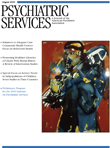Letter
Recovery-Oriented Care and Choice
To the Editor: Recent publications in this journal ( 1 ) and elsewhere ( 2 ) suggest that the capabilities approach offers a new conceptual framework for understanding the nature of recovery in serious mental illness and for translating the implications of this notion of recovery into innovative practices. In our work, we have found that the capabilities approach—derived primarily from the work of Amartya Sen ( 3 )—offers especially useful responses to the increasingly pressing questions of what makes a practice recovery oriented and how such an orientation differs from current care.
Now that recovery has moved to the forefront of policy, the focus has shifted to how we are to transform our practice. An answer was offered several years ago by two leaders in the recovery movement. As early as 1992 Deegan ( 4 ) suggested that "the concept of recovery is rooted in the simple yet profound realization that people who have been diagnosed with a mental illness are human beings." Anthony ( 5 ) more recently argued that recovery draws our attention to the fundamental "personhood" of people with mental illnesses. Thus one answer is to suggest that a practice can be considered recovery oriented to the degree to which it engages the personhood of the person with the illness.
But what is entailed in engaging someone's "personhood"? How can we tell when a practitioner is, or is not, treating a person with a mental illness first and foremost as a human being? It is here that the work of Sen is especially needed and, we suggest, especially helpful. In a capabilities approach, personhood is defined by two interrelated concepts—freedom and agency. Liberty is essential to what makes us human, as having liberty allows us to exercise our personal agency. Being free requires both being free from political, economic, social, and material deprivation and being free to make our own decisions. It is for this reason that Sen ( 3 ) suggests that "'choosing' itself can be seen as a valuable functioning." In fact, a capabilities approach suggests that it is precisely in freely exercising our personal agency, in making decisions and pursuing those activities that we choose to value, that people are most fully human.
Putting the pieces together, a capabilities approach suggests that a practice can be judged to be recovery oriented to the degree to which it engages and is based on an appreciation of the fundamental role of choosing, of making our own decisions, in making us who we are. Such a position may have been implicit in Drake and Deegan's ( 6 ) recent commentary on the ethical imperative to honor patient choice. We suggest that according this position an explicit and central role will provide an essential criterion for judging whether practices are oriented to promoting recovery. Meeting this criterion is a key way in which such practices differ from repackaged versions of traditional practices (that is, old wines in new bottles).
1. Ware NC, Hopper K, Tugenberg T, et al: Connectedness and citizenship: redefining social integration. Psychiatric Services 58:469–474, 2007Google Scholar
2. Hopper K: Rethinking social recovery in schizophrenia: what a capabilities approach might offer. Social Science and Medicine 65:868–879, 2007Google Scholar
3. Sen A: Development as Freedom. New York, Anchor, 1999Google Scholar
4. Deegan PE: The independent living movement and people with psychiatric disabilities: taking back control over our own lives. Psychosocial Rehabilitation Journal 15(3):3–19, 1992Google Scholar
5. Anthony WA: The principle of personhood: the field's transcendent principle. Psychiatric Rehabilitation Journal 27:205, 2004Google Scholar
6. Drake RE, Deegan PE: Shared decision making is an ethical imperative. Psychiatric Services 60:1007, 2009Google Scholar



